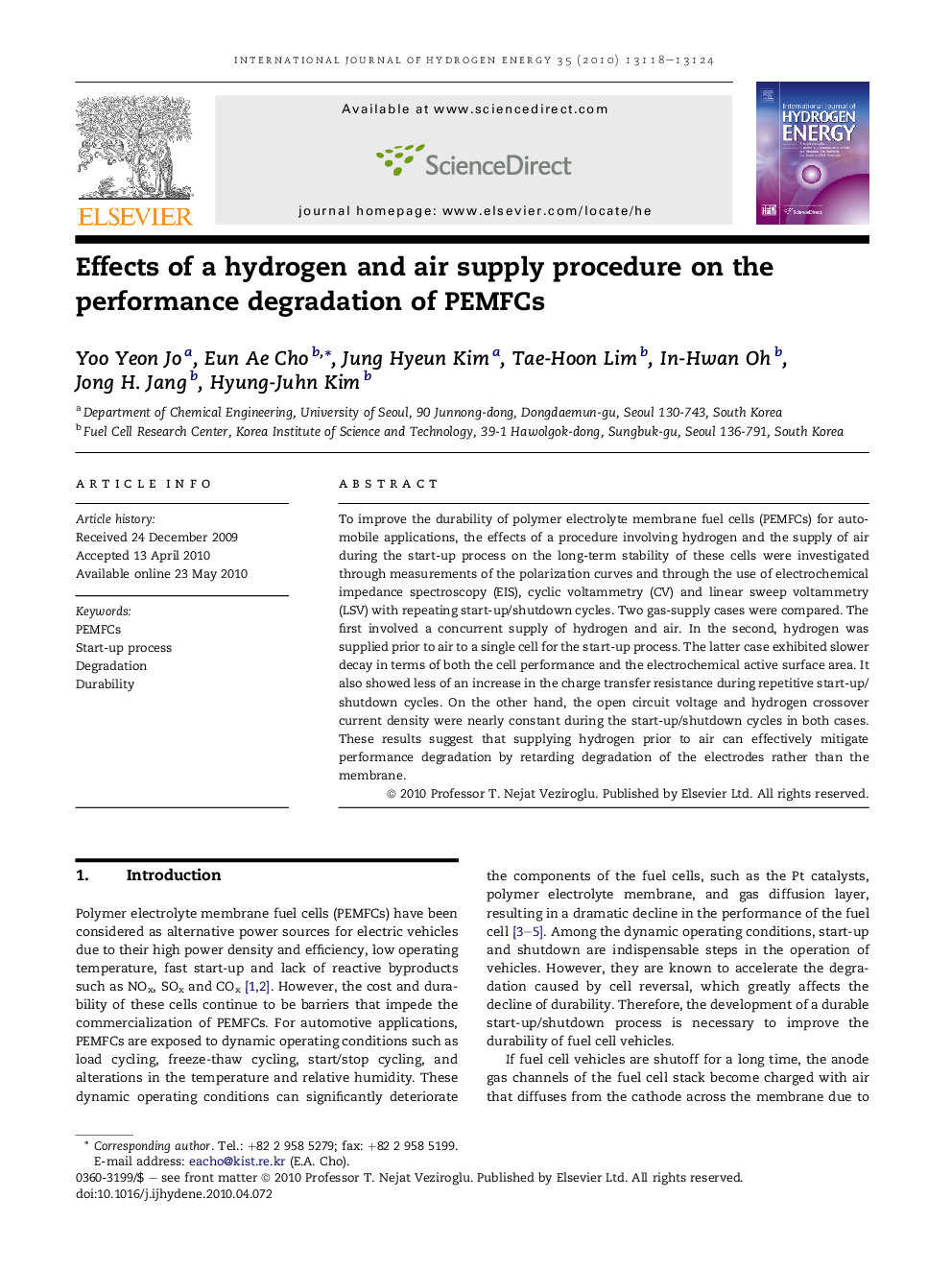| Article ID | Journal | Published Year | Pages | File Type |
|---|---|---|---|---|
| 1279964 | International Journal of Hydrogen Energy | 2010 | 7 Pages |
To improve the durability of polymer electrolyte membrane fuel cells (PEMFCs) for automobile applications, the effects of a procedure involving hydrogen and the supply of air during the start-up process on the long-term stability of these cells were investigated through measurements of the polarization curves and through the use of electrochemical impedance spectroscopy (EIS), cyclic voltammetry (CV) and linear sweep voltammetry (LSV) with repeating start-up/shutdown cycles. Two gas-supply cases were compared. The first involved a concurrent supply of hydrogen and air. In the second, hydrogen was supplied prior to air to a single cell for the start-up process. The latter case exhibited slower decay in terms of both the cell performance and the electrochemical active surface area. It also showed less of an increase in the charge transfer resistance during repetitive start-up/shutdown cycles. On the other hand, the open circuit voltage and hydrogen crossover current density were nearly constant during the start-up/shutdown cycles in both cases. These results suggest that supplying hydrogen prior to air can effectively mitigate performance degradation by retarding degradation of the electrodes rather than the membrane.
